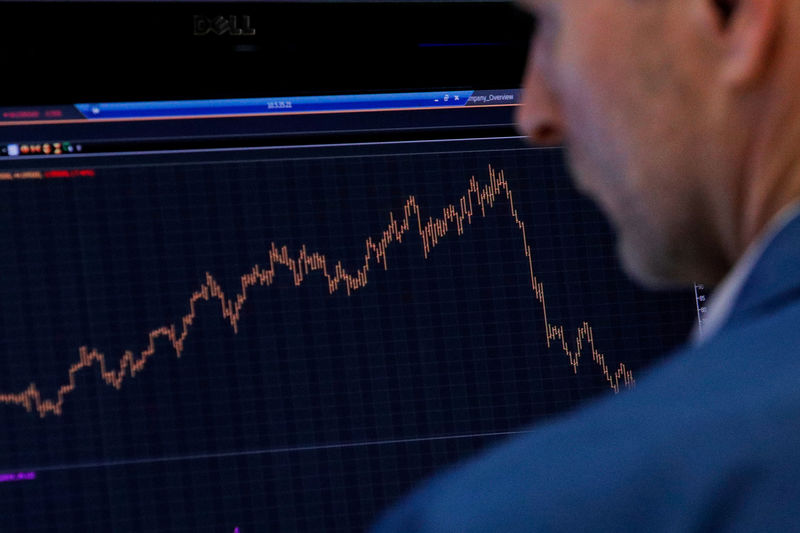By Gertrude Chavez-Dreyfuss and Richard Leong
NEW YORK (Reuters) - U.S. Treasury yields rose on Thursday with 30-year yields climbing from record lows, as hopes on U.S.-China trade talks and a dismal seven-year note auction cooled the recent torrid rally in the bond market.
Part of the yield curve remained inverted with a negative gap between two-year and 10-year yields at -2.9 basis points, little changed on the day. The yield curve has inverted before every U.S. recession in the past 50 years.
China's commerce ministry on Thursday said Beijing and Washington are discussing the next round of face-to-face trade talks scheduled for September.
"The most important thing at the moment is to create necessary conditions for both sides to continue negotiations," commerce ministry spokesman Gao Feng said during a weekly briefing, adding that China was lodging "solemn representation" with the United States.
China's latest message reduced safe-haven bids for Treasuries, German Bunds and major sovereign debt, analysts and investors said.
"If you take away the trade war, you take away the worries," said Brent Schutte, chief investment strategist with Northwestern Mutual Wealth Management Co.
In late trading, U.S. benchmark 10-year Treasury note yields (US10YT=RR) rose to 1.5063%, up 3.8 basis points from Wednesday. The yield on 30-year bonds (US30YT=RR) rose to 1.9727%, rallying from record lows of 1.905% touched on Wednesday.
Investors are awaiting what the Federal Reserve would do to counter the risks from a possibly protracted trade fight between the world's two biggest economies.
Interest rates futures implied traders have positioned for the Fed to lower rates at its upcoming policy meeting in September, following a rate cut in July, which was its first since 2008, according to CME Group's FedWatch program.
Treasury yields extended their rise following a $32 billion auction of seven-year debt, in which the overall bidding was its weakest since this security debuted more than a decade ago. The seven-year note sale marked a disappointing end to this week's $113 billion in fixed-rate government debt supply.
Treasury Secretary Steven Mnuchin told Bloomberg News late on Wednesday that the possibility of issuing ultra-long U.S. bonds is "under very serious consideration" by the Trump administration.
J.P. Morgan released a survey on Thursday that showed more investors are open to owning an ultra-long bond than two years ago, but a majority still prefer the Treasury to introduce a 20-year security over one that matures beyond 30 years.
